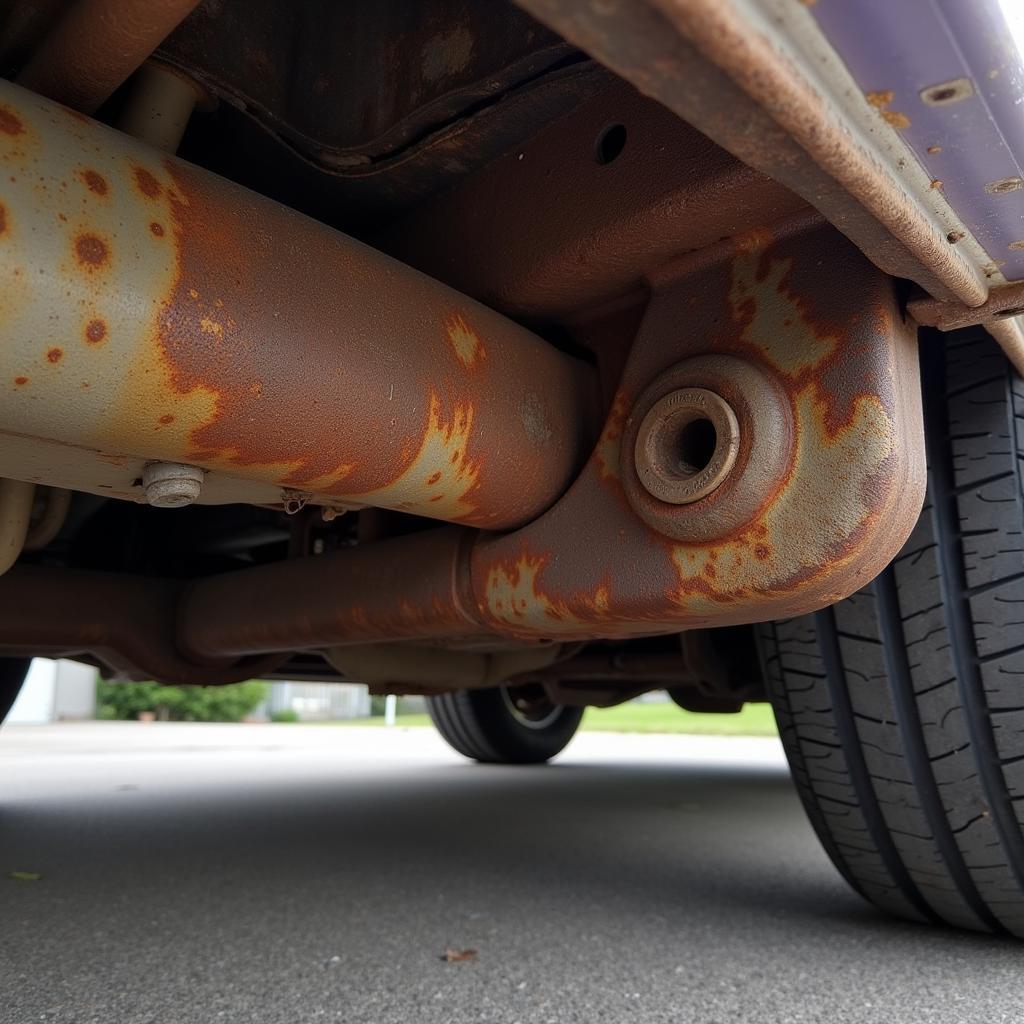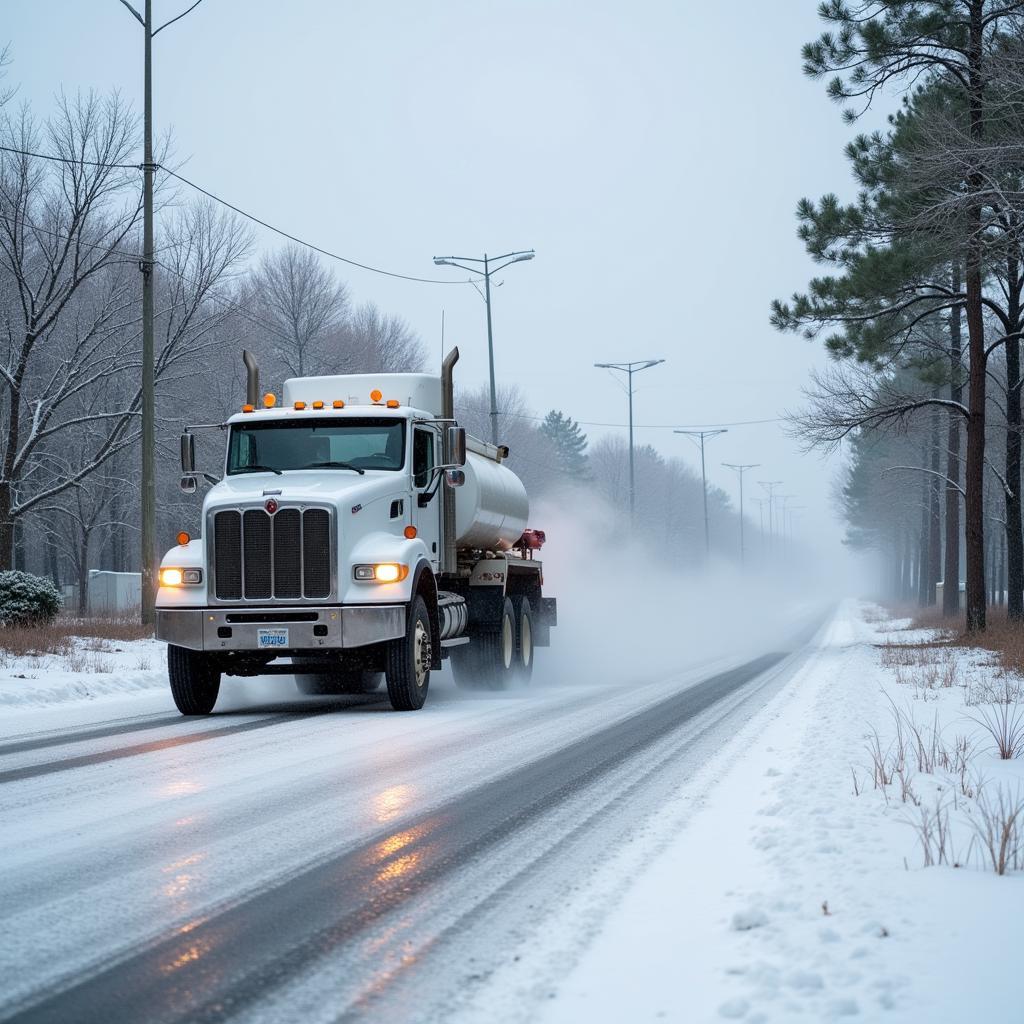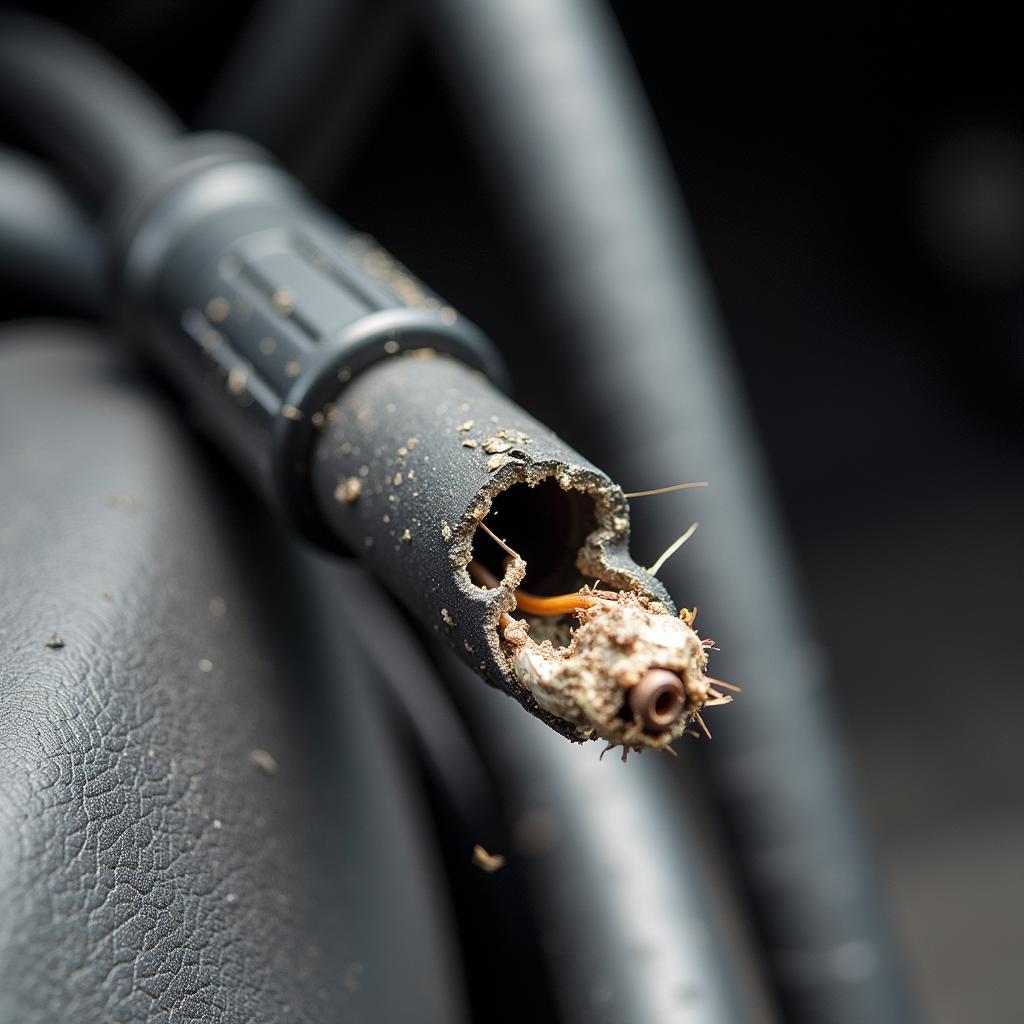Florida, known for its sunny beaches and tropical climate, unfortunately, harbors a hidden enemy for cars: rust. While the thought of rust might conjure images of old, neglected vehicles, the reality is that even relatively new cars in Florida can fall victim to this corrosive menace. But why is rust so prevalent in the Sunshine State, and just how big of a problem is it for Florida cars?
Let’s delve into the factors that make Florida a prime breeding ground for rust and explore the extent to which it plagues car owners.  Rust on a car in Florida
Rust on a car in Florida
The Perfect Storm: Why Florida Cars are Susceptible to Rust
The culprit behind Florida’s rust issue is a combination of environmental factors that create the perfect storm for corrosion:
-
Humidity: Florida boasts notoriously high humidity levels, and humid air acts as a catalyst for rust formation. When metal surfaces are constantly exposed to moisture, it creates an ideal environment for rust to thrive.
-
Salt Air: Living near the coast has its perks, but it also means contending with salty air. Salt accelerates the rusting process, eating away at metal components much faster than in areas with dry air.
-
High Temperatures: The warm climate might be a draw for residents, but it also speeds up the chemical reaction that causes rust. The higher the temperature, the faster rust can spread.
 Road salt application in Florida
Road salt application in Florida
While you might not think of Florida as a state that needs road salt, it does get used in some areas, particularly in the northern parts of the state. Road salt is highly corrosive, and when combined with Florida’s already rust-prone environment, it can wreak havoc on cars.
What to Look For: Identifying Rust on Florida Cars
Rust can be sneaky, starting as small, almost invisible spots and quickly spreading to cause significant damage. Here are some key areas to inspect for rust on Florida cars:
-
Undercarriage: This is the most vulnerable area as it’s directly exposed to road spray, salt, and moisture. Look for any signs of rust on the frame, suspension components, and exhaust system.
-
Wheel wells: These areas trap dirt and moisture, making them susceptible to rust. Check inside the wheel wells for any signs of corrosion.
-
Body panels: Rust can also affect the car’s body, particularly around the edges of doors, fenders, and the trunk lid. Look for bubbling paint, which is often a telltale sign of rust underneath.
-
Chrome trim: While chrome is designed to resist rust, it’s not immune. Inspect chrome bumpers, trim pieces, and wheels for any signs of pitting or discoloration.
Protecting Your Investment: Preventing Rust in Florida’s Harsh Climate
The good news is that there are proactive steps you can take to protect your car from rust and keep it looking its best:
-
Regular Washes: Frequent washing, especially after driving near the coast or during periods of high humidity, can help remove salt and grime that contribute to rust.
-
Undercarriage Protection: Consider getting an undercoating treatment, which involves applying a protective layer to the undercarriage of your car to shield it from moisture and road debris.
-
Waxing: A good coat of wax doesn’t just make your car shine; it also provides a barrier against the elements that can cause rust.
-
Garage Storage: If possible, store your car in a garage or covered area to minimize exposure to the elements.
Is Rust a Deal Breaker? Buying Used Cars in Florida
The prevalence of rust in Florida makes buying used cars particularly tricky. While some rust might be cosmetic, extensive rust can indicate serious structural damage that compromises the safety and reliability of the vehicle. When considering a used car in Florida:
-
Get a Pre-Purchase Inspection: Have a trusted mechanic thoroughly inspect the car, paying close attention to the areas prone to rust.
-
Factor in Repair Costs: If you do find a car you love with some rust, factor in the potential cost of repairs or rust treatment into your budget.
-
Consider the Car’s History: Cars that have spent their entire lives in Florida are more likely to have rust issues than those that have been driven in drier climates.
Don’t let rust put a damper on your Florida driving experience. By being aware of the risks and taking preventive measures, you can keep your car rust-free and enjoy many miles of carefree cruising on those sunny Florida highways.
Have more questions about Florida cars and rust?
Here at AutoTipPro, we’re here to help! Give us a call at +1 (641) 206-8880 or visit our office at 500 N St Mary’s St, San Antonio, TX 78205, United States. We’re happy to answer your questions and provide expert advice on all things automotive.
FAQs:
-
Does car insurance cover rust damage in Florida? Typically, car insurance policies do not cover rust damage as it is considered a maintenance issue. However, it’s always best to check your specific policy for details.
-
Can I treat rust myself, or should I take it to a professional? Minor surface rust can sometimes be treated with DIY products, but for more serious rust, it’s best to consult a professional for proper repair or replacement of affected parts.
-
Are some car models more susceptible to rust than others? Yes, certain car models are known to be more prone to rust due to factors like the type of metal used and the design of certain components. You can research specific models online for information about their rust susceptibility.
-
How much does it cost to repair rust damage on a car? The cost of rust repair can vary greatly depending on the severity of the damage and the location. Minor repairs might cost a few hundred dollars, while extensive rust could require thousands of dollars in repairs.
-
Should I avoid buying a used car from Florida altogether because of the rust issue? Not necessarily. While rust is a valid concern when buying used cars in Florida, it doesn’t mean all used cars from the state are bad. Thorough inspections and careful consideration of the car’s history can help you make an informed decision. For more information about the dangers of buying used cars from Florida, check out dangers of used cars from florida problems. If you’re unsure about a car’s history, it might be helpful to learn about the problems after junking car to avoid potential issues.







Leave a Reply